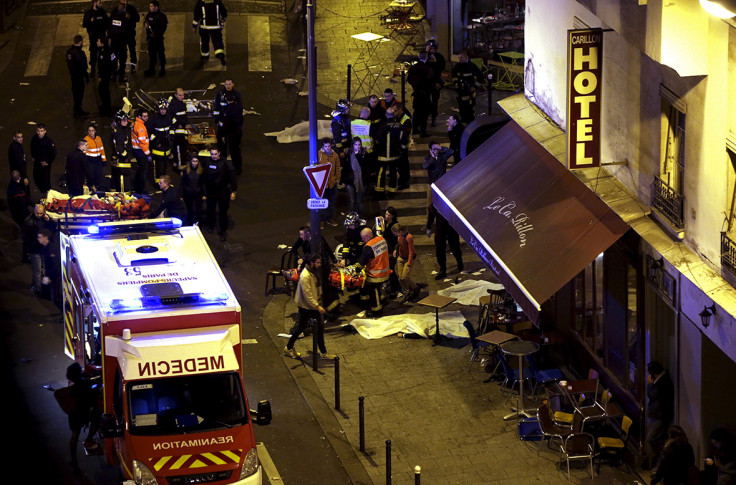We say that Islamist jihadis believe in nothing - but increasingly neither do we
Terrorism today is an end in itself rather than a means to an end as the IRA and PLO would have conceived of it.

It is now over two decades since the French political scientist Zaki Laïdi published 'A World without Meaning', his analysis of the post-Cold War world order. If we combine his concept with holocaust survivor and psychoanalyst, Viktor Frankl's views expressed in his book 'Man's Search for Meaning' that it is not suffering that kills people but suffering without meaning, then we are left with a world full of pain.
We don't just have the 'Death of God' that in Nietzsche's mind forced a nihilism, the overcoming of which would be humanity's greatest challenge, but also the death of politics. The end of the Cold War opened the floodgates to a host of outlooks that had been held in check through the reality of mutually assured destruction. Among these was a virulent social constructionism that ultimately holds human purpose to be a form of vanity.
Accordingly, it is not just jihadists who act as nihilists today, but the whole of society. Terrorism today is an end in itself rather than a means to an end as former groups such as the IRA and PLO would have conceived of it. These latter simultaneously sought to galvanise a community to their goals by engaging with these politically.
Today, individuals claim to act on behalf of the Muslim ummah without consulting anyone. Many who detonate their devices in public places could leave their bombs behind and live to fight another day. That they do not do this speaks of their ultimate disillusion and nihilism. They have given up on the possibility of changing things and, as the Russian revolutionary Trotsky noted in relation to anarchists, they have simultaneously rejected the potential of their fellow human beings to be mobilised by their ideas.
But the authorities too, when they act on our behalf without consultation, reveal their own inner exhaustion in the aspiration of democracy and progress. They prefer to by-pass the difficult labour of love that is required to carry us with them through the power of persuasive engagement. Instead, simplistic slogans abound, 'you're either with us or against us', without any attempt to articulate what it is that we are meant to be for, exactly.
Frustration with the situation also leads to that polar opposite of nihilism that is nevertheless encouraged by it – narcissism. Everyone today wants 'to make a difference' but few want to do so through laboriously building up support with others and putting their ideas to the test. Rather the moral act suffices, whether this be climbing up lamp posts in Beijing to protest against China's treatment of Tibet, occupying an airport runway or blowing yourself up.
Rather than obsessing about 'what terrorists want', something about which we can do precious little, it may be better to start from what we want.
There is something for everyone here, everyone that is who has given up on the masses as the vehicle for historic change. Lacking purpose or any analysis their desire to 'do something' overtakes all. But this self-estranged, self-pitying fury is a long way from achieving lasting social transformation.
Terrorism as disgust with imperialism or consumerism is violence without political engagement. It may be public in form but it is private and limited in nature. What ought to matter most – both to the terrorists and the authorities – is that the goals be shared and the actions be taken by the people themselves. But belief in popular agency today is at an all-time low. And, if truth be told, there is a real basis for that. The end of the Cold War demobilised the masses and left them exhausted and defeated. But the people are still there for any who care to look and not dismiss their potential.
Rather than obsessing about 'what terrorists want', something about which we can do precious little, it may be better to start from what we want. Are we so clear of who we are, what we stand for and where we are going that we can interdict those who stand in our way? The military historian John Keegan used to describe war as 'collective killing with a purpose'. But contemporary culture is challenged by each of those key terms. In any previous period of history, the actions of the Islamic radicals would at best have featured as minor disturbances in the footnotes of history.
Only in an age without direction could such mindless violence come to be seen as full of meaning and requiring an all-consuming response. Ultimately, extremists are merely the extreme expression of mainstream ideas. Their ideas have to come from somewhere.
It is we who depict human beings as violent and degraded, as suffering from arrogance and ignorance, or as hapless and vulnerable victims needing constant therapeutic support by a range of experts. Little wonder that such a small coterie of fools, the terrorists who espoused these ideas in an extreme form, could have such strong purchase. It is by underestimating our mainstream confusion that we overemphasise what we come to call extremism.
Professor Bill Durodie, Head of Department and Chair of International Relations, The University of Bath is speaking on the panel Nihilism and terror: how political is the new jihadism? at the Battle of Ideas — 2016 at The Barbican on 22 – 23 October.
© Copyright IBTimes 2025. All rights reserved.






















